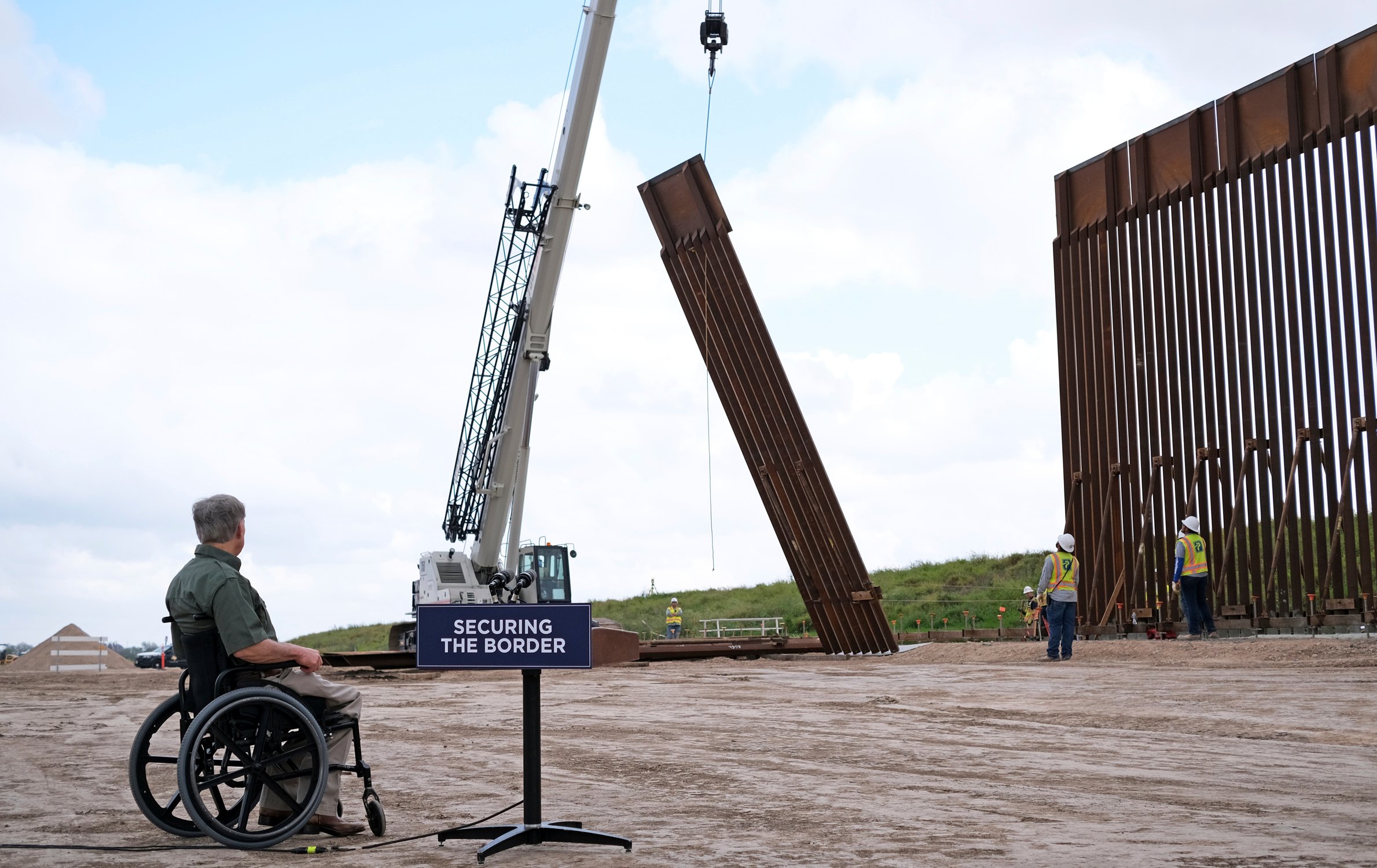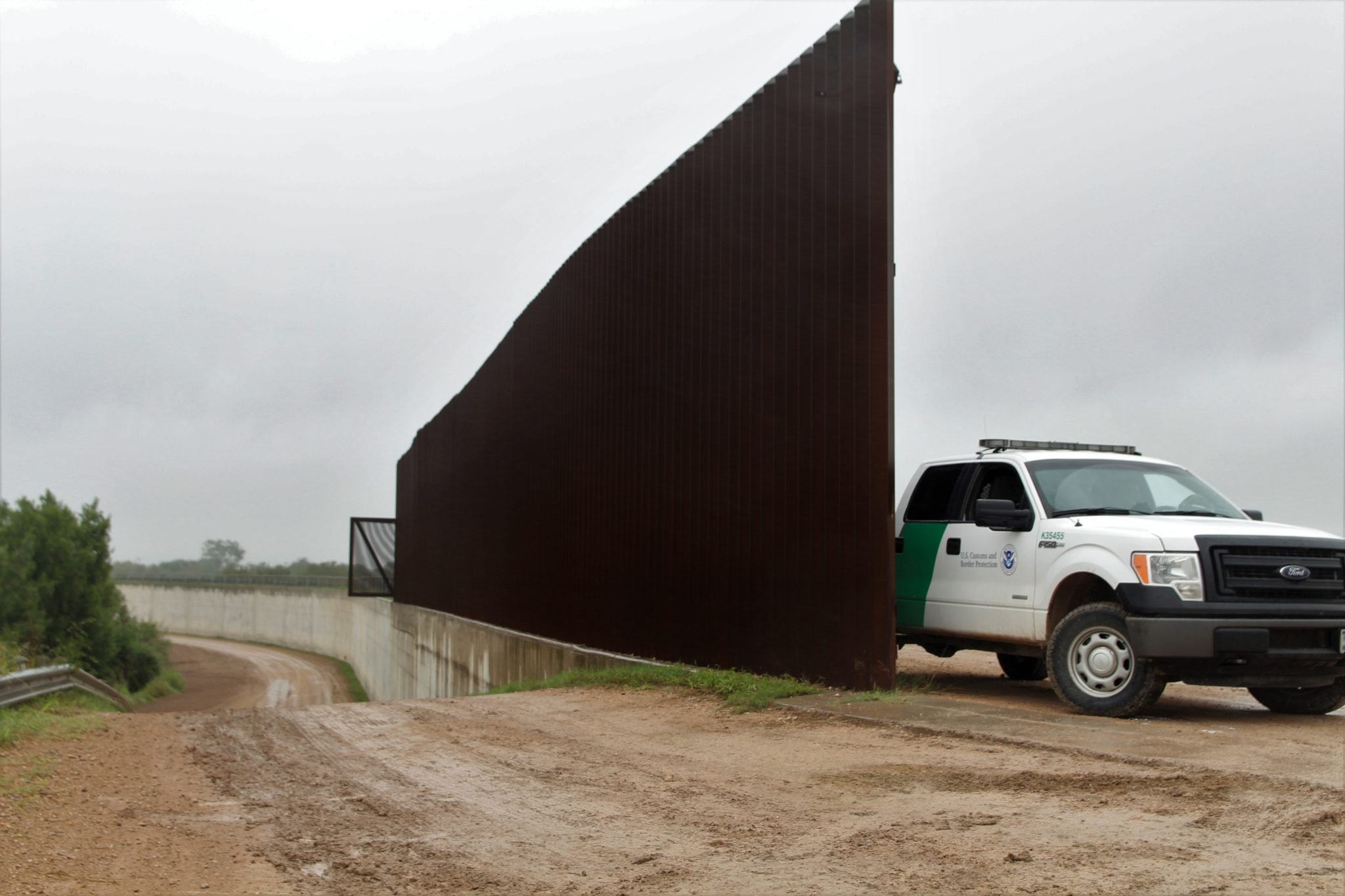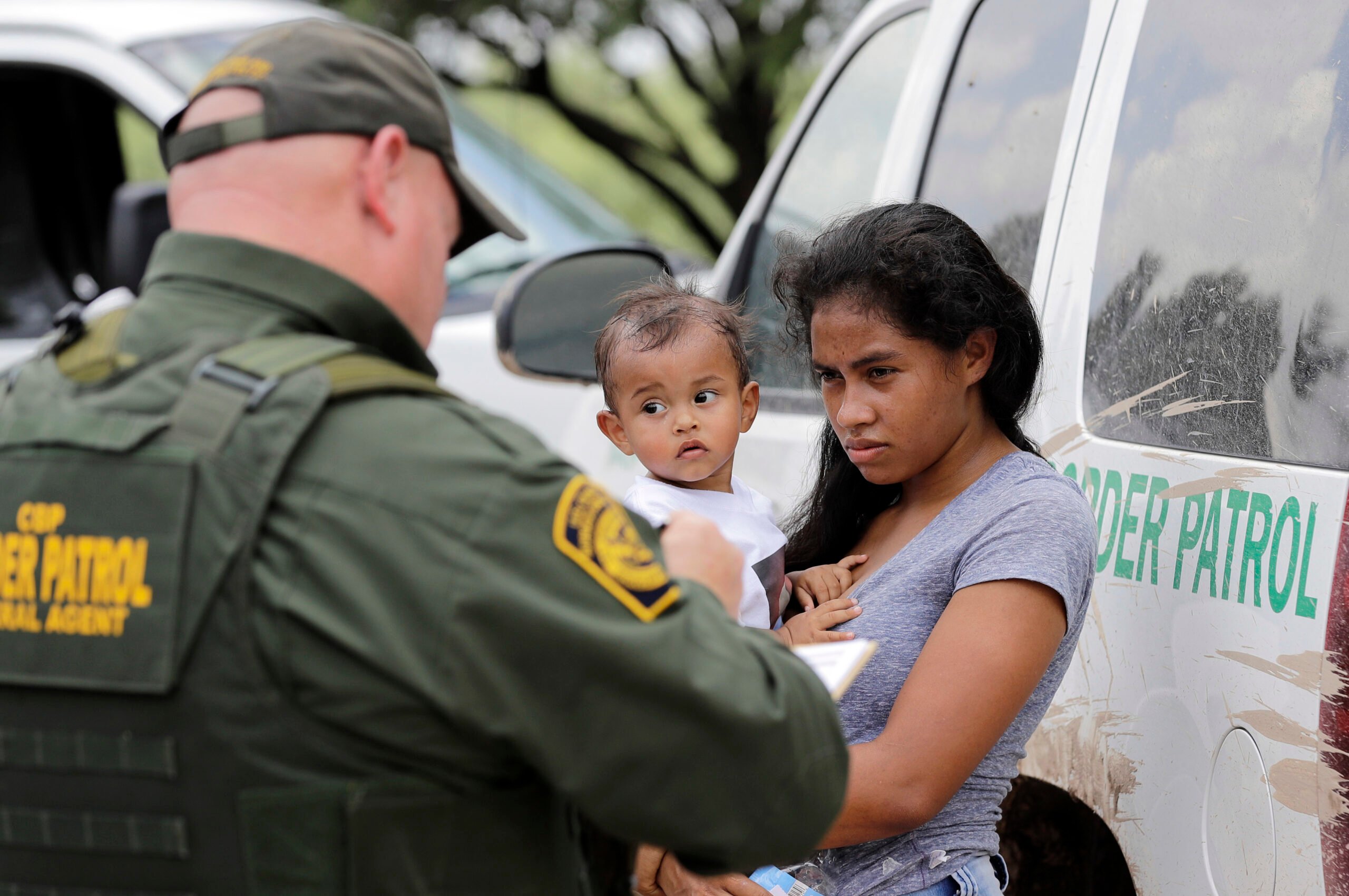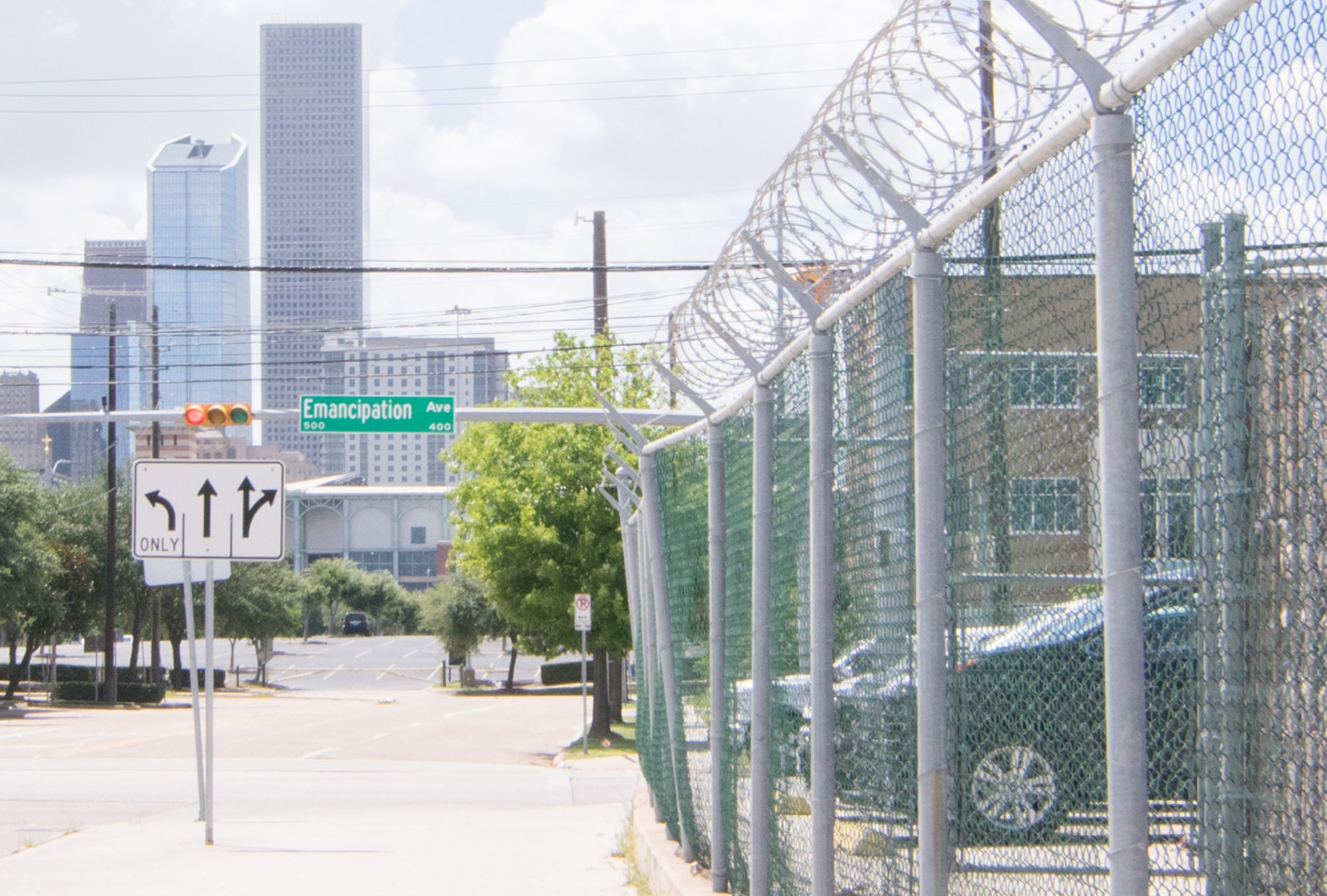
‘Border Security’ Is a Financial Black Hole that Will Consume Us All
Spending on cops and tech at the border has increased ninefold in a decade.

Call it the iron law of border security funding. Once a Republican starts spending money to “secure the border,” he (usually “he”) will never voluntarily stop spending, the border will never be deemed secure, and migration patterns will continue to shift according to global events beyond his control. Like plunking pebbles into the ocean, he’ll toss taxpayer dollars at international inequality, reaping his reward when GOP primary season comes.
In the 2008-09 biennium (the timeline for Texas budgets), under then-Governor Rick Perry, the State of Texas spent a meager $100 million on border security, a task traditionally in the federal government’s purview. In 2014-15, that figure leapt to half a billion, as the state responded to an influx of asylum-seeking Central American children with a flood of National Guard troops along the border (and as Perry prepped his second presidential run). As Governor Greg Abbott took over, the two-year price tag rose to $800 million. Ostensibly, this spending was meant to spite Obama for his liberal immigration policies; Texas’ governors even futilely demanded the administration reimburse them for doing the feds’ job. But during former President Donald Trump’s wildly anti-immigrant term, the logical time to hand the border burden back to Washington, Texas slightly increased its border security expenditures. Trump, of course, didn’t reimburse Texas either.
Finally, facing primary challenges from his right and high on the unilateral authority he’d snatched under the guise of COVID-19, Abbott put the torch to caution, shoveling more than $4 billion to border security in the current biennium—mostly from the Legislature, with the balance from sketchy executive maneuvers. This deluge of dollars fueled the governor’s Operation Lone Star, a costly and legally dubious deployment en masse of Guard members and state troopers to the border to make misdemeanor arrests, issue tickets, and initiate high-speed car chases. Now, both the state House and Senate budgets proposed for 2024-25 would bankroll border security to the tune of $4.6 billion—and nothing seems likely to stand in the way of it.
Both the state House and Senate budgets proposed for 2024-25 would bankroll border security to the tune of $4.6 billion.
In a House budget hearing Monday, a pair of Democratic lawmakers had the chance to question the heads of the Department of Public Safety (DPS) and the Texas Military Department, which along with the Governor’s Office are set to receive the border bonanza. El Paso Democrat Mary Gonzalez chairs the relevant budget subcommittee. She might have used the chance to ask fundamental questions about Operation Lone Star: Is the program actually deterring migration? (Federal numbers suggest it’s not.) Does it amount to mass racial profiling of brown-skinned people at the border? (A civil rights complaint from the ACLU and others suggests it does.) Is it an efficient means of preventing opioid overdoses? (The nation’s past wars on drugs raise doubts at least.) Are the government’s statistics about the operation’s impacts even reliable? (Journalistic investigations suggest they aren’t.)
Instead, Gonzalez mostly nibbled at the margins of the policy, asking, for instance, whether state troopers who arrest women migrants for criminal trespassing have been trained to deal with sexual assault survivors, along with inquiring after the morale of National Guard members.
Houston Democrat Jarvis Johnson attempted to drive closer to the matter’s heart. He pointed out that Abbott and other Operation Lone Star backers conflate a mission to stop unauthorized migrants with a mission to halt drugs like fentanyl, even though hard drugs tend to be smuggled through legal ports of entry by American citizens. But Johnson’s questions were never sharp enough to dislodge a seasoned bureaucrat like DPS Director Steve McCraw from his talking points. “Do we want to stop migrants or do we want to stop drugs; at the end of the day we’re placing emphasis where?” Johnson asked.
“Well, what we hope to do is stop the Mexican cartels, it’s the Mexican cartels that are moving the migrants and the drugs,” McCraw replied—thus laying out a seemingly laudable mission that no state agency is suited to actually accomplish.
Outside the Capitol, a tiny group of advocates gathered during the hearing to protest continued Operation Lone Star funding.
Gage Brown, a self-identified lifelong resident of Kinney County, a rural area at the epicenter of Lone Star’s excesses, said she’s seen her local police turn their focus toward immigration enforcement rather than problems like domestic abuse, adding that she regularly sees officers engage in dangerous and deadly high-speed car chases. “They are dedicating their every last resource to hunting migrants like wild game while my community suffers the consequences of neglect,” Brown said. “This is the fire being fueled by Operation Lone Star.”
Back in the hearing room, public testimony began after about five hours of agency testimony.
Jaime Puente, representing the progressive think tank Every Texan, called Lone Star a “boondoggle” and an example of misguided immigration policy: “People will continue to come to the shining city on a hill, that’s who we are … so if we continue spending four-plus billion dollars over the next two years on ‘deterrence-only’ policies, we’ve already wasted our money. You might as well just go up to the rotunda and set it on fire.”
“They are dedicating their every last resource to hunting migrants like wild game while my community suffers the consequences of neglect.”
In migration parlance, “deterrence” policies are measures that seek to address disorderly immigration by ratcheting up punishment for migrants until they abandon the American Dream. To varying degrees, this approach has been pursued by Presidents W. Bush, Obama, Trump, and Biden. The number of Border Patrol agents, for example, is twice what it was in 2001, and Biden is in the midst of rolling out new Trumpian asylum restrictions. In Texas, Operation Lone Star is only the latest and largest enterprise of its ilk, following operations Linebacker, Drawbridge, Strong Safety, and Strong Safety II. But threats of arrest and deportation tend to be countervailed by economic, environmental, and governmental crises abroad, which send new and varying waves of travelers U.S.-bound.
Texas, and the state’s border region in particular, have far more pressing needs ranging from the foster care system to healthcare to education, but the politics of border security breed institutional pigheadedness. Democrats in much of the country feel vulnerable on immigration and the border (see Texas Dems’ 2022 postmortem), and Republicans hear from their base that it’s impossible to go too far with the issue—shy, perhaps, of mass family separations or policies that actually halt cross-border trade.
Near the end of Monday’s lengthy hearing, David Johnson, a policy and research organizer with Grassroots Leadership, put the opportunity cost of border security funding in sharp relief. The sum of $4 billion, he began to recite, could mean roughly $3.9 million for every school district in Texas, or half a million for each school, or $12,000 for every public school teacher, or more than $15 million for mental health services in every county, or something like $150,000 for every unhoused person in the state.
But “instead of using these funds wisely, judiciously, and equitably to address issues that we know exist without question, issues that are not opinion, or conjecture, or bias,” Johnson said, “the state has leaned into a fear-mongering campaign that conflates asylum-seekers with drug trafficking.”



